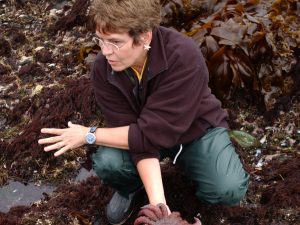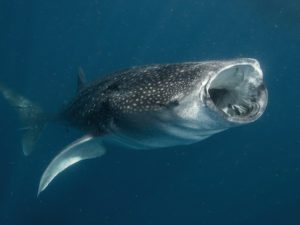Editor’s Note: Meg Caldwell, Deputy Director of Oceans at the David and Lucile Packard Foundation, provided this perspective piece for the web-launch of Our Shared Seas in April 2019. She shares personal insights on the state of ocean health and insights on next steps for the conservation community.
The Packard Foundation is pleased to share this new online version of Our Shared Seas to support learning and informed decision-making on ocean resource management and conservation globally. CEA Consulting prepared this web-based successor to the first print edition of Our Shared Seas to provide a user-friendly platform featuring up-to-date ocean data and analysis, with ocean conservation, policy, and funding communities in mind.
Having dug into this online resource, here are a few ‘takeaways’ and personal insights that are top of mind:
- Healthy and resilient ocean and coastal ecosystems underpin the world’s economic, political, cultural, and climate systems, and we know enough now to act on behalf of the ocean, recognizing that important knowledge gaps still exist. Research agendas can and should fill important knowledge gaps—such as how much fish (and bycatch) we’re taking out of the sea and the condition of marine habitats globally—to thornier statistics, such as the extent of Illegal, Unregulated, and Unreported (IUU) fishing, the amount of plastic entering the ocean and marine food webs, or the true cost of ocean acidification on marine ecosystems and the human communities that depend on them for food and livelihoods. Even with these gaps, we know enough now to act for improved ocean health and resilience by curbing CO2 emissions, implementing science-based and sustainable fisheries management, addressing ocean pollution, establishing and fully implementing strongly protected marine reserves, and embracing nature-based coastal adaptation solutions.
- New technology and other innovations are ushering in an era of accelerating transparency – allowing us to see more of what’s happening on the ocean and below the water’s surface in unprecedented ways. Private and public sector commitments are pushing the frontier on transparency, ocean stewardship, and innovation. Low-cost vessel monitoring and custom data analytics provide greater insights into understanding the small-scale fishing fleet while electronic monitoring and remote sensing satellite data provide cost-effective, real-time tracking of global commercial fishing activity. These new tools—and the data they produce—enable a rapidly growing body of scientific research, which inspires action by policy-makers, enforcement agencies, and private sector leaders who embrace empirically-based decision-making. Countries such as Indonesia, Peru, and Panama are leading other nations in sharing their vessel monitoring data publicly to advance more sustainable and responsible seafood production. To be sure, technology must be accompanied by strong management systems and capacity on the ground, and we are optimistic that the insights these tools make possible will lead to change on the water where financial resources and political leadership also exist.
- Partners across all sectors—from academia and government to industry and funders—are emerging as strong ocean stewards and champions, seeking solutions that work for people and our blue planet. The scale of ocean-climate challenges before us, the diversity of communities both affected by and working to improve the state of our global ocean resources, and common understanding that collaboration is essential to changing the trajectory for the ocean—all underscore the urgency and importance of our collective action.
In the face of such a sobering picture of threats and dramatic change, our Foundation remains committed to advancing local, national, and global leadership, scientific capacity, human ingenuity, and a growing circle of partners, advocates, communities, and funders that are creating positive and more durable change for the ocean—our life support system.
Please share this site with others, and we invite your feedback about how this site can best support those working to support ocean health at oursharedseas@ceaconsulting.com.
Warmly,

Meg Caldwell
Deputy Director, Oceans
The David and Lucile Packard Foundation


